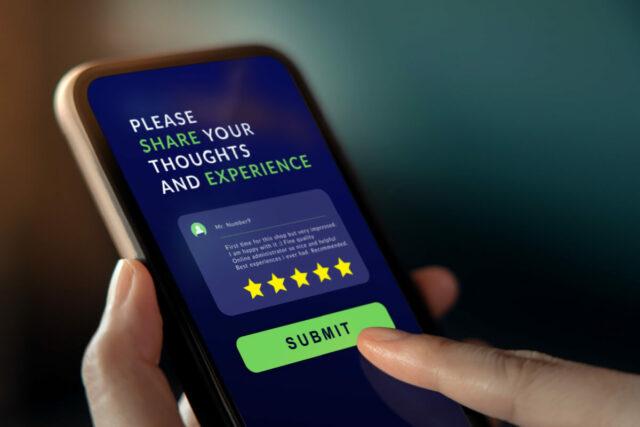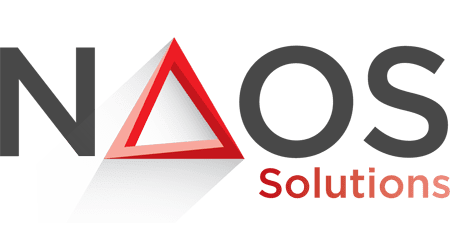Customer experience outsourcing has emerged as a strategic beacon for enterprises seeking operational efficiency and, in fine, success. Outsourcing in this field isn’t a trend; it’s a game-changer.
As customer satisfaction reigns supreme, demand for high-quality customer service solutions has reached unprecedented levels. According to a recent Forbes market survey, 58% of customers say they will switch brands for better customer service.

CX leaders cannot view outsourcing solely as a cost-cutting measure. It has become a critical strategy for improving overall customer engagement.
NAOS CX has operated in the customer experience industry for over 15 years. We have crafted this article to explore the significant potential of outsourcing to revolutionize our work and drive transformative change.
This journey will unveil Customer Experience Outsourcing across industries, its benefits, and practical implementation, integration, and measurement strategies.
UNDERSTANDING CUSTOMER EXPERIENCE OUTSOURCING
Customer Experience (CX) outsourcing involves engaging an external provider to handle internal tasks and to manage and improve various aspects of the customer journey. Companies can reduce their workload and expenses by outsourcing tasks and responsibilities that impact the customer journey.
CX outsourcing aims to improve customer satisfaction, maximize efficiency, increase sales, and reduce business costs. It can include handling customer inquiries, providing technical support, managing social media interactions, conducting surveys, and more.
The Evolution of the Global CX Outsourcing Market
While the term “outsourcing” gained popularity in the late 20th century, its history stretches back further, with evidence of similar practices throughout time. Determining a precise starting point is very challenging.
Early Forms of Outsourcing:
- 16th Century: Wealthy British landowners sent garment production to India for lower labor costs, indicating early international outsourcing.
- 18th-19th Century: The Industrial Revolution saw textile mills outsource spinning and weaving to specialized workers or cottage industries, exemplifying domestic outsourcing. This organizational structure led to a significant increase in efficiency and productivity and reduced costs.

The global outsourcing market grew to support essential corporate operations in the 20th century. The advent of international communication made it easier for businesses to outsource tasks to contact centers or BPO providers worldwide.
Evolving Landscape of CX outsourcing:
- 1960s: Call centers emerged, initially handling basic customer inquiries and transactions. Still, the practice was marginal.
- 1980s-90s: Technological advancements such as email and automated systems enabled remote communication and support. Some companies experimented with outsourcing basic customer service tasks to domestic firms to reduce costs.
- 2000s: Globalization, the internet boom, and 24/7 customer expectations created a need for scalable, multilingual support. Offshore outsourcing to cost-effective locations like India and the Philippines gained momentum, sparking debates about quality and cultural nuances.
- 2010s-Present:. Customer experience outsourcing has evolved to include complex interactions, multi-channel support, and specialized services such as social media moderation.

CX outsourcing has become increasingly sophisticated, leveraging technologies such as artificial intelligence, chatbots, data analytics, and omnichannel platforms to deliver seamless and personalized customer experiences. Businesses also outsource more complex functions such as customer relationship management (CRM), customer insights, and experience design to specialized providers.
CX Outsourcing Market Stats
In 2023, the Contact and Call Centre Outsourcing market was valued at USD 77.78 billion. The future looks bright, with market value projected to surge to USD 124 billion by 2030, growing at a CAGR of 4.53%.
Globally, the two most important industries have dominated the data on large and small business outsourcing:
- Business Process Outsourcing (BPO): Payment Processing, Internet Marketing, Shipping, and Customer Support are all included in Business Process Outsourcing (BPO).
- IT outsourcing (ITO): Cloud Computing, Data Backups, and Web Hosting are all included in IT Outsourcing (ITO). ITO is the fastest-growing segment of the CX outsourcing market, with +22% between 2022 and 2023. A recent study cited by CustomerThink reports that, in 2022, the average IT department budget for U.S.-based companies accounted for 13.6% of their total budget.

Characteristics Of Effective Customer Experience Outsourcing
Multichannel Support
Outsourced providers offer support across multiple channels, ensuring customers can engage through their preferred channels. They usually include:
- phone,
- email,
- chat,
- social media,
- self-service portals.
24/7 Availability
Many outsourcing providers offer round-the-clock assistance across time zones, improving client satisfaction and service quality. Clients want constant accessibility and immediate support. Addressing their inquiries and issues in real time can significantly enhance customer satisfaction and loyalty.

Technology
To remain competitive, outsourcing firms frequently invest in technologies. Call centers increasingly incorporate Artificial intelligence (AI), chatbots, automation, and other cutting-edge technology to improve customer experiences and increase efficiency.
But more than just fancy technologies, your outsourcing partner should be able to ensure business continuity from a technical standpoint. They should provide viable solutions for call transfers, access to your CRM and other technology you use, and queue synchronization if you maintain an in-house contact center.
Data-driven Insights
Outsourcing partners leverage data analytics and customer feedback to understand customer behavior, preferences, and pain points. The insights gathered enable businesses to make informed decisions and continuously improve the customer experience.
Brand Alignment
Effective CX outsourcing requires alignment between the outsourced provider and the brand’s values, voice, and customer service standards to ensure a seamless and consistent experience across all touchpoints.
THE UNSEEN POWER OF CX OUTSOURCING
Customer Experience outsourcing offers a wide range of strategic advantages for businesses seeking to enhance customer satisfaction, improve operational efficiency, optimize resources, and maintain a competitive advantage.
The advantages of CX outsourcing extend far beyond surface-level benefits. The real power comes from invisible operational drivers that specialized providers master—predictive data systems, proactive issue prevention, and continuous quality intelligence that work behind the scenes to create exceptional customer experiences. Understanding these eight hidden drivers reveals why outsourcing delivers results that in-house teams struggle to replicate.
Cost Efficiency

CX outsourcing can significantly reduce operational costs associated with maintaining in-house customer service teams, infrastructure, and technology investments. Outsourcing providers leverage economies of scale to reduce costs for their clients.
They offer competitive pricing, cost-effective solutions, and specialized expertise to optimize processes, automate routine tasks, and implement best practices. This leads to greater operational efficiency and cost reduction. Additionally, outsourcing providers have efficient processes in place, which enable them to deliver high-quality customer experiences at a lower cost.
Businesses can avoid the upfront capital expenditures and ongoing operational expenses associated with building and maintaining their customer service infrastructure. They can convert fixed costs into variable costs, which adjust to fluctuations in customer demand, seasonal patterns, or market conditions.
Instead of bearing the total cost of maintaining a dedicated customer service team year-round, businesses pay for CX services on a usage or per-transaction basis, providing greater flexibility and cost control.
Focus on Core Business
Companies can foster a culture of innovation, experimentation, and continuous improvement that drives long-term success and sustainable growth by delegating non-core functions and routine CX tasks to outsourcing partners. For instance, non-core functions can include administrative burdens associated with recruiting, training, and retaining in-house customer service staff.
Outsourcing CX functions allows businesses to align internal resources with strategic priorities and focus on core business activities, critical processes, and primary functions, including infrastructure and facility maintenance, technology adoption, product development, innovation, and strategic planning.

Scalability and Flexibility
Outsourcing CX functions allows businesses to quickly adjust their operations in response to market conditions, seasonal changes, or expansion. Outsourcing partners can soon ramp up capacity, add new channels, or modify service levels to meet evolving customer needs without significant capital investments or long-term commitments.
CX outsourcing providers offer customized solutions and flexible service options. Outsourcing partners can design flexible service agreements to meet companies’ needs for dedicated teams, shared resources, or hybrid models. In doing so, they align with companies’ specific goals, budgets, and performance objectives, providing greater agility and adaptability in managing CX operations.
A unique advantage is that CX outsourcing enables companies to expand their geographic footprint and reach new customer segments without significant investments in infrastructure, facilities, or personnel.
Companies can serve customers across different regions, languages, and time zones by partnering with outsourcing providers that have global operations and multilingual support capabilities. This facilitates their geographic expansion and market penetration strategies.
Access to Specialized Expertise
CX outsourcing providers have deep domain expertise, industry knowledge, advanced technologies, and best-in-class customer service practices. Businesses can tap into a wealth of knowledge and experience not available internally.
Enhanced Customer Satisfaction and Loyalty
Outsourcing CX functions can improve customer satisfaction, loyalty, and retention rates. CX outsourcing providers offer round-the-clock support, providing faster response times, personalized interactions, and consistent service across multiple channels. They enable companies to deliver seamless, responsive customer service in various time zones, geographic regions, and channels.

In addition, CX outsourcing providers adhere to strict service level agreements (SLAs) and quality standards to ensure consistent service quality and performance. Companies can build trust, credibility, and loyalty with their customer base by maintaining high service standards across all interactions and touchpoints.
Also, CX outsourcing providers use data analytics and customer insights to personalize interactions and anticipate customer needs and preferences. Companies can create meaningful, memorable experiences that resonate with customers and foster long-term loyalty by personalizing their responses based on individual customer profiles and past interactions.
Risk Mitigation and Compliance
Outsourcing CX functions can help businesses mitigate operational risks, ensure regulatory compliance, and maintain data security and privacy standards. Reliable outsourcing providers have robust security protocols, compliance frameworks, and disaster recovery measures.
They protect sensitive customer information and minimize business disruptions, allowing companies to focus on managing strategic risks and driving business continuity.
Focus on Innovation, Technology, and Continuous Improvement
Outsourcing CX functions allows businesses to focus on process improvement and strategic initiatives to drive business growth and differentiation. By outsourcing day-to-day customer service management, internal teams can dedicate more time and resources to driving innovation and delivering exceptional customer experiences.
OPTIMIZING CUSTOMER EXPERIENCES FOR DIVERSE INDUSTRIES
Streamlining E-commerce Customer Experience Through Outsourcing
E-commerce businesses face unique challenges requiring a nuanced approach to customer service that balances regulatory compliance with operational excellence. The need for merchants selling products or services in the USA to comply with the Fair Credit Billing Act (FCBA) requirements, coupled with the demands of order management, seasonality, and handling returns and exchanges, creates a complex environment.
Outsourcing customer experience management offers a strategic solution that enables e-commerce businesses to navigate these challenges effectively.

Expertise in Billing Disputes and Regulatory Compliance
Outsourcing partners excel at navigating the FCBA’s requirements efficiently and managing billing disputes to maintain customer trust. Their specialized knowledge extends to broader e-commerce operational challenges, offering a comprehensive solution that goes beyond dispute resolution.
Adapting to Seasonality with Scalability
The ebb and flow of e-commerce demand, marked by seasonal peaks and promotional periods, necessitates a flexible customer service model. Outsourcing enables businesses to scale their customer support with demand fluctuations, ensuring consistent service quality during high-volume periods.
Enhancing Order Management and Fulfillment
Outsourcing firms bring sophisticated systems to streamline order processing and fulfillment, ensuring accuracy and timeliness. This capability is crucial for managing surges in orders during peak periods, such as holiday seasons, and for maintaining customer satisfaction through efficient logistics and communication.
Efficient Management of Returns and Exchanges
Handling returns and exchanges is a pivotal aspect of customer service that directly influences loyalty. Outsourcing partners facilitate a smooth returns process that aligns with consumer protection laws and ensures a positive customer experience, which is vital to encouraging repeat business.
SaaS Companies: Beyond Technical Support
For SaaS companies, stellar customer support is not just about resolving technical issues—it’s about creating an outstanding user experience that fosters loyalty and drives growth. Partnering with CX Outsourcing Providers allows SaaS businesses to tap into a pool of technical expertise, enjoy scalable support solutions, and offer 24/7 service to a global user base, which is critical to thriving in the competitive tech sector.
Technical Mastery at Your Service
Outsourcing equips SaaS companies with a team of tech experts who are adept at troubleshooting, resolving complex issues, and enhancing product usability. This ensures users receive top-notch assistance and contributes to overall product optimization.
Ready to Scale, Ready to Serve
The fluctuating nature of support requests, from seasonal spikes to growth surges, demands a flexible customer service strategy. Outsourcing meets this need with scalable support solutions, enabling SaaS companies to adjust their support capacity swiftly to meet user demand.
Round-the-Clock Support, Worldwide
With users scattered across the globe, providing consistent, timely support is challenging. Outsourcing providers bridge this gap with 24/7 multilingual support, ensuring users everywhere receive the help they need, boosting satisfaction and loyalty.
Telecom: Ensuring Connectivity and Satisfaction

Billing and Account Management
The inquiries related to billing, account management, plan upgrades, and service changes can all be handled by outsourcing CX to process payments, update account information, resolve billing discrepancies, address customer inquiries, ensure accurate and transparent billing practices, and drive customer satisfaction.
Proactive Customer Engagement and Retention
Outsourcing CX can provide data analytics, customer insights, and proactive engagement strategies to identify at-risk customers, anticipate their needs, and deliver personalized outreach and support that strengthen relationships, reduce churn, and maximize customer lifetime value.
Compliance and Regulatory Support
Telecom companies operate in a highly regulated environment, and compliance with industry standards, data privacy laws, and regulatory requirements is paramount. Accordingly, outsourcing CX mitigates risks and maintains customer trust and credibility by adhering to strict compliance frameworks, security protocols, and regulatory guidelines to protect sensitive customer information, safeguard privacy rights, and ensure regulatory compliance.
Financial Institutions: Trust and Security at the Forefront
Financial institutions, including banks and insurance companies, face the dual challenge of maintaining rigorous security while ensuring customer satisfaction. By outsourcing customer service to specialized providers, a bank can offer 24/7 support for online banking services, fraud detection, and personalized financial advice.
This approach is similar to the strategies used by fintech innovators such as Revolut and Square, which focus on security and personalized customer service to build trust and loyalty.
MASTERING CUSTOMER EXPERIENCE OUTSOURCING: STRATEGIC PARTNER SELECTION AND IMPLEMENTATION
Checklist For Choosing The Right Outsourcing Partner:
- Research and identify outsourcing partners with relevant experience, expertise, and a proven track record.
- Evaluate outsourcing partners based on their technology capabilities, scalability, cultural fit, and commitment to quality and innovation.
- Seek referrals, read reviews, and request case studies or client references to assess the outsourcing partner’s reputation and credibility.
- Consider cost, service level agreements (SLAs), contractual terms, and risk mitigation strategies when selecting the right outsourcing partner.
Integrating Outsourced Services with Existing Operations
- Foster open communication and collaboration between internal teams and outsourcing partners to ensure alignment of goals, processes, and expectations.
- Identify and agree on a Single Point of Contact (SPOC) on the Outsourcer’s side and an Account Manager on your team. They will be responsible for managing communication and serving as points of reference. The SPOC will oversee the development of standard operating procedures and ensure that the account manager approves them.
- Develop clear guidelines, procedures, and protocols for integrating outsourced services with existing operations, including workflows, reporting structures, and escalation paths.
- Provide comprehensive training and onboarding for internal staff and outsourcing partners to facilitate knowledge transfer, clarify roles and responsibilities, and promote seamless collaboration.
- Establish regular checkpoints, performance reviews, and feedback sessions to monitor progress, address issues, and optimize the integration of outsourced services with existing operations.

Measuring and Maintaining Quality
- Define key performance indicators (KPIs) and metrics aligned with business objectives, customer expectations, and service level agreements (SLAs) to measure the quality and effectiveness of outsourced services.
- Implement robust quality assurance processes, monitoring mechanisms, and performance evaluation frameworks to assess adherence to quality standards, identify areas for improvement, and drive continuous optimization.
- Leverage technology solutions, data analytics, and customer feedback mechanisms to track and analyze performance metrics, identify trends, and make data-driven decisions to enhance service quality and customer satisfaction.
- Establish a customer-centric culture of accountability by emphasizing quality, transparency, and continuous improvement in service delivery for internal teams and outsourcing partners.
Continuous Improvement and Adaptation
- Foster a culture that encourages learning, proactive problem-solving, and experimentation to address evolving customer needs and market dynamics.
- Encourage collaboration, knowledge sharing, and cross-functional teamwork between internal teams and outsourcing partners to identify opportunities for innovation, optimize processes, and drive continuous improvement initiatives.
- Embrace feedback loops, post-mortem analyses, and lessons learned sessions to capture insights, celebrate successes, and learn from failures, fostering a culture of resilience, growth, and adaptability in the face of challenges and disruptions.
CONCLUSION
Throughout our exploration journey, we’ve highlighted several key points that underscore the significance of CX outsourcing and its impact on business success. CX Outsourcing allows businesses to focus on their core competencies, drive operational efficiency, and optimize resource allocation by delegating non-core functions, such as customer service, to specialized outsourcing partners.
To maximize CX Outsourcing benefits, choose a reliable and experienced partner committed to quality and innovation. By conducting thorough due diligence, establishing clear performance metrics, and fostering strong partnerships, businesses can ensure seamless integration, consistent service delivery, and mutual success with their outsourcing providers.
By partnering with NAOS CX, businesses can unlock new possibilities, drive sustainable growth, and deliver unparalleled value to their customers and stakeholders. Our customer experience outsourcing services can help drive your business growth and success with our industry-leading expertise, innovative solutions, and unwavering commitment to excellence. Feel free to contact us!

